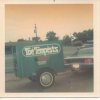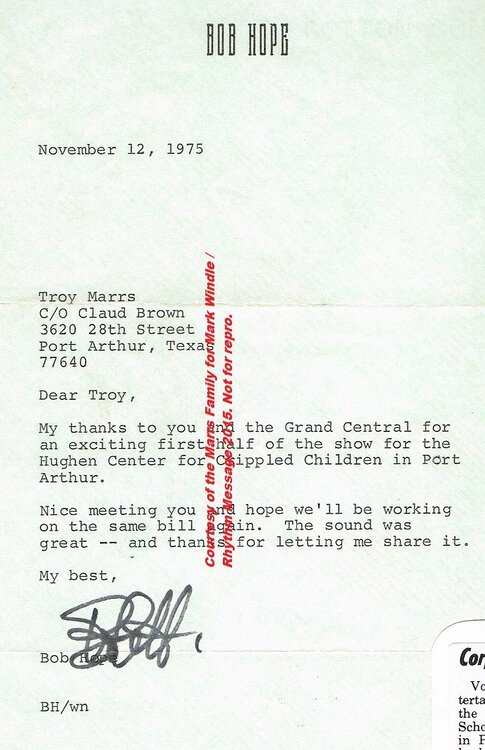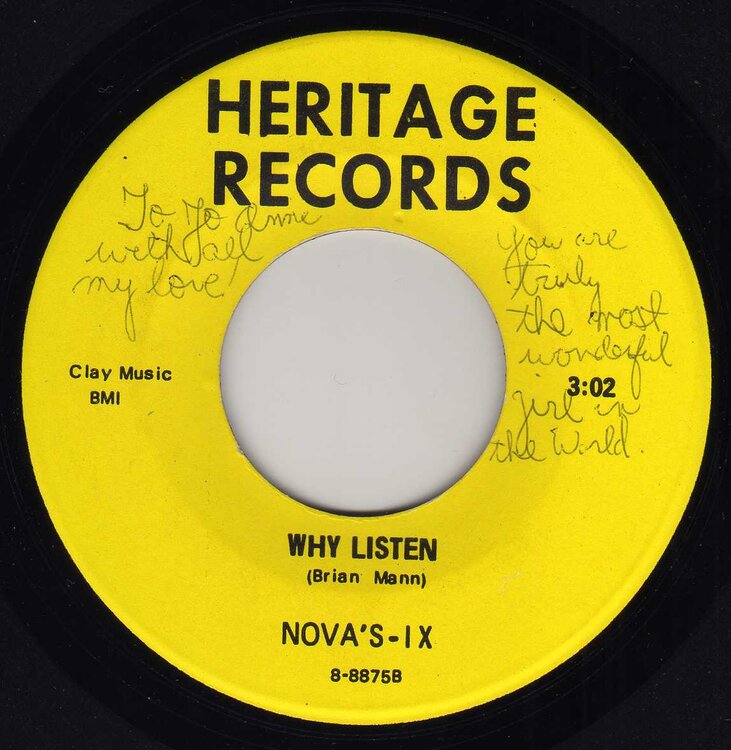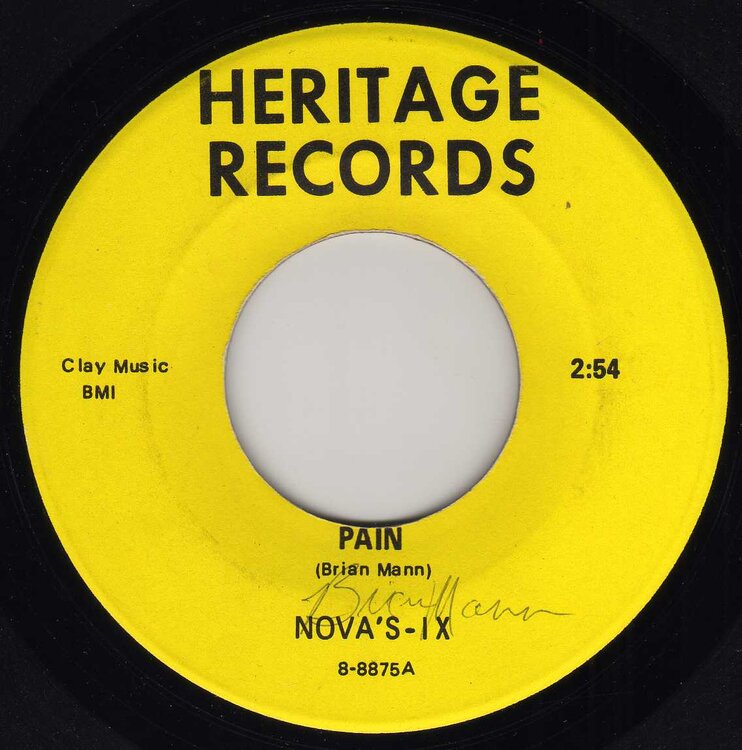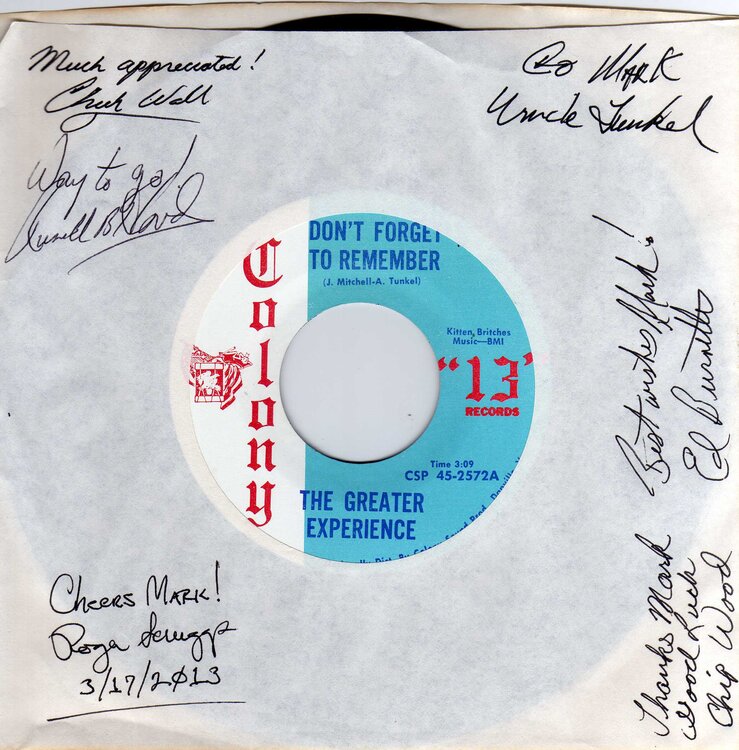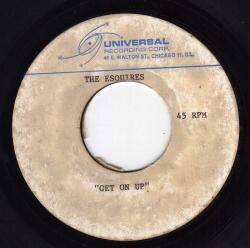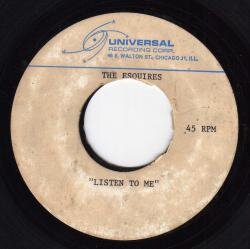Everything posted by Windlesoul
-
The delcos- Arabia on Delta
Story goes Fred Foster secured the Ebony master as a lease in from their manager Juanita Henson, and had intended it for his new Showcase label, but an agreement with Henson and Foster meant it ended up being re-recorded at Nashville using established and respected Monument musicians (Bill Justis, Boots Randolph etc). Showcase 'became' Sound Stage 7 as a result of some kind of label registration problem I believe.
-
News: The Post Wigan Years - Northern Soul
A truly enjoyable read Chalky. You refer to this as a brief overview - I say much more than that. Comprehensive documentation of this particular era of northern soul history has been a long time coming. Really appreciate all your hard work here. Thanks for taking the time to pull this together.
-
The Avons - Push a little harder (Groove)
Cheers, but it's specifically the actual picture cover I'm after (more than the record even).
-
The Avons - Push a little harder (Groove)
The Avons - Push a little harder (Groove). Easy one. Not fussed about condition BUT must come with the picture cover, and cover must be in fine condition, no writing etc. PM me with details and a price. Thanks, Mark.
-
News: The Tempests
But they were (and some still are) musicians. Nelson Lemmond (drums), Roger Branch (guitar), Mike Branch (keyboard), Van Coble (bass guitar), Tom Brawley (flute & baritone saxophone), Gerald Schrum (tenor saxophone), Rick White (tenor saxophone), Ronnie Smith and Jim Butt (trumpet). At other points in The Tempests’ life, Ray Alexander, Bill McPhearson and Eddie Grimes all played trumpet. These guys were the mid 60s line up; in the early 60's nearly a completely different line up bar the Branch brothers again all musicians, who were actually called the Tempests Band, (who backed up Mike Williams on a couple of Atlantic 45s).
-
Picture Sleeve values?
Folk might be interested in this for a Crimbo present.......https://www.blurb.co.uk/b/5573053-soul-reflections I must have 200+ of the suckers, started as a novelty side line and got a bit obsessive. My book contains a load of these plus some nice contributions from Craig Butler.
-
News: Kent Box Set - Back To The River: More Southern Soul Stories 1961-1978
I concur, really fantastic looking comp.
-
Kent Box Set - Back To The River: More Southern Soul Stories 1961-1978
I concur, really fantastic looking comp.
- News: Ann Sexton Story
-
Autographed Bits and Bobs
This one didn't quite make "Rhythm Message" as I didn't have enough space to include it. Letter sent from Bob Hope to Troy Marrs when they both appeared at a benefit concert in Texas, mid 1970s...
- News: Ann Sexton Story
-
The Fantastics - High Note (Sound Stage 7)
Nope Alan, there's no significance unless it relates only specifically to that 45, though I don't think its been booted. There's no legal reissue to my knowledge. The first 'plain' Sound Stage 7 logo (plain red / white if demo) ran 63 to late 64 / early 65ish, and the 7 appeared as a raised thin 7, or a thicker block font type 7 more in line with text. Neither format suspicious.
-
What's a good book on Soul music, not necessarily NS?
There's these two, on southern soul with a northern twist... https://www.blurb.co.uk/b/5936116-rhythm-messagehttps://www.blurb.co.uk/b/5936116-rhythm-message https://www.blurb.co.uk/b/4222235-it-s-better-to-cry-colour-version
-
Autographed Bits and Bobs
Also got this local pre-ABC copy of Nova's Nine's 'Pain / Why listen', signed by member and writer Brian Mann at the time they released it
-
Autographed Bits and Bobs
Posted this up before, a little present they sent me for pulling their story together for 'It's Better to Cry'.....
-
Peggy Gaines - Kent anniversary 45
Peggy Gaines - When the boy that you love / San Fran TKOs - Kent Anniversary 6T14 Price and condition please to PM
-
The Tempests : Would You Believe ! (L.P.)
I'm happy with both audio-wise on this. The mono is harder .
-
Dan Folger SORTED
Dan Folger - Way of the crowd - Elf SORTED
-
Paramount Four, Poodles, Hal and Jean
Cheers mate got that
-
Paramount Four, Poodles, Hal and Jean
Paramount Four - You dont know - Southern City Poodles - Step by step - Southern City Hal & Jean - Dont tell me lies - Capitol SORTED Price and condition please, PMs..... Cheers, Mark.
-
Esquires on Bunky
-
Paramount Four - Southern City
Paramount Four - You dont know - Southern City Price and condition, please PM.
-
Johnny Jones & King Casuals - Purple Haze
Still need one....
-
Fame 45S Originals - George Jackson, Carter, Staton, Conquest Etc
Five on FAME - all superb tracks in their own right. Paypal only, postage £3 each UK, £5 elsewhere. Please note I can only post weekends. George Jackson - My desires are getting the best of me - ex £20 superb crossover Clarence Carter - Tell daddy - ex white promo and the original take on Etta James £20 Jimmy Hughes - I'm a man of action ex white promo £20 Candi Staton - Too hurt to cry - ex superb mid tempo crossover £20 June Conquest - Almost persuaded - ex harder white promo £20 PM if interested
-
Paramount Four (Southern City)
Still looking....

